#Harriet Gibbons
Explore tagged Tumblr posts
Text
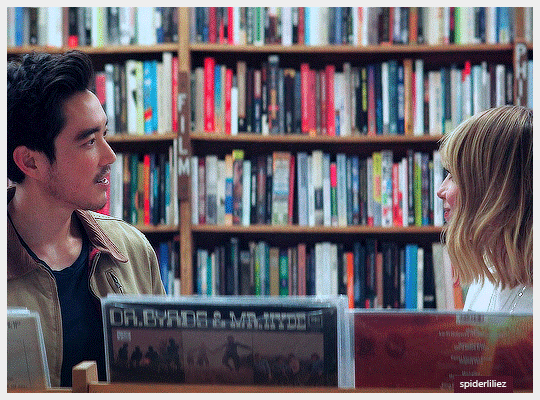

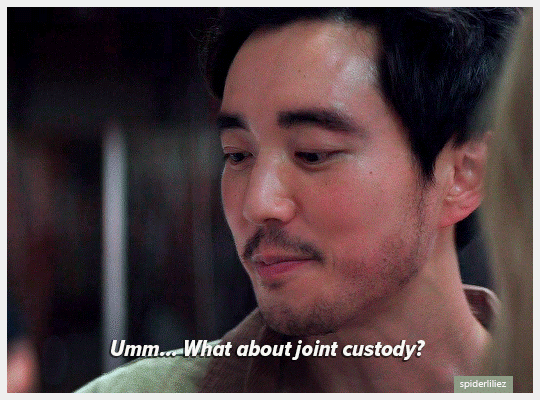
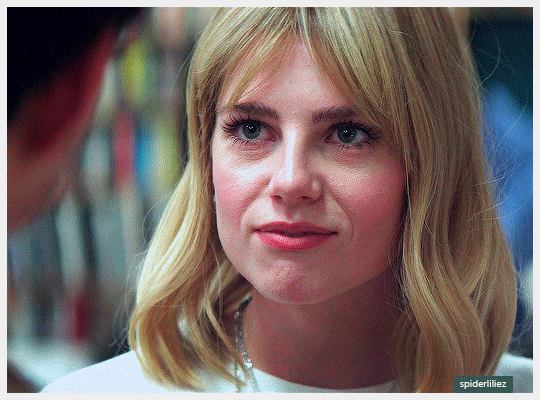
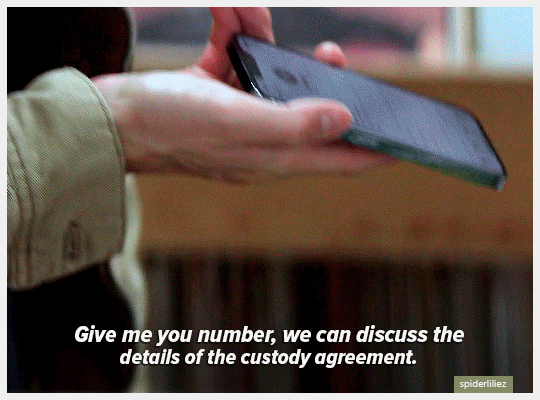
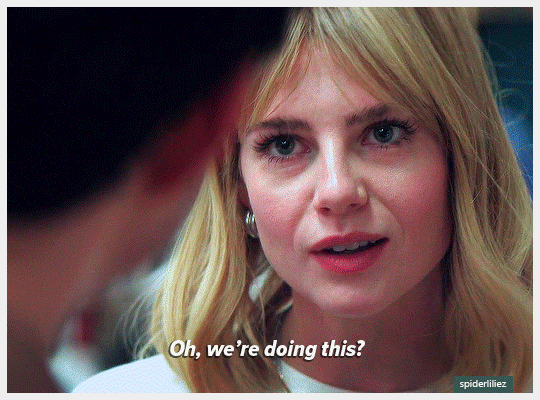


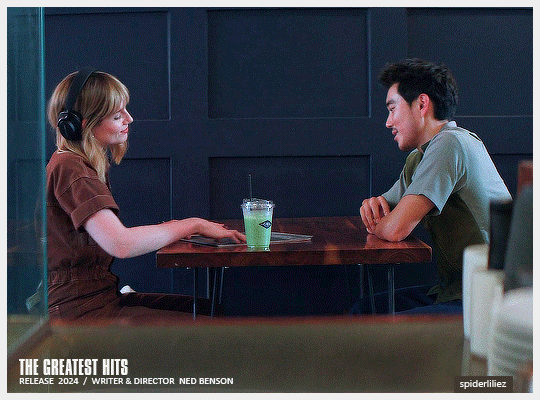
“TO TURN YOU ON” (Disco Pusher Remix) by Roxy Music THE GREATEST HITS (2024)
[+] LUCY BOYNTON [GIF Collection] 🌷 [+] “The Greatest Hits” 🎬
#The Greatest Hits#Lucy Boynton#Justin H. Min#Harriet Gibbons#David Park#To Turn You On#Roxy Music#Quotes
114 notes
·
View notes
Text




Oh to look like them
#girlblogger#girlblogging#tumblr girls#girlblog#ahs#american horror story#coven#ahs coven#american horror story coven#madisonmontgomery#lucy boynton#lucyboynton#the greatest hits#harriet gibbons#madison montgomery#theblackcoatsdaughter#the blackcoat's daughter#scream queens#chanel oberlin#julia roberts#juliaroberts#pretty woman#anya taylor joy#notting hill#erin brockovich#sleeping with the enemy#mirror mirror#runaway bride#wild child#the queens gambit
18 notes
·
View notes
Text




#doctor who#dwedit#doctorwhoedit#tvedit#fifteenth doctor#kate stewart#harriet arbinger#morris gibbons#jemma redgrave#genesis lynea#lenny rush#the legend of ruby sunday
83 notes
·
View notes
Text
Dust and Darkness Prevail

Panspermia is the theory that human life was seeded by comets, asteroids, meteoroids, and space dust falling to Earth. Directed panspermia is the idea that an unknown third party purposely seeded life onto this planet through similar means. These are perhaps the most ancient of aliens. For whatever reason, be it propagation, a future food source, or simply contamination from an explorer���s boot, somehow, we were created. It’s easy to see why mankind looked to the stars for parentage- we are made of star stuff, after all. As our understanding of the stars grew, so did our desire to understand them in relation to ourselves. Staring down the concept of being a mere dust mote floating within sunbeams, some of us began to wonder if the Gods we abandoned weren’t actually a different form of sky daddy. In the words of Giorgio A. Tsoukalos- “Aliens.”
Science fiction has a rich history of depicting ancient Gods as alien lifeforms. Doctor Who is no different. Sometimes these extra-terrestrial visitors are used to explain odd phenomena, and other times, they’ve been used to outright undermine the achievements of ancient civilisations. One of the most popular ancient alien theories is that aliens helped build the pyramids. Some Egyptian-themed polyhedron-obsessed aliens influenced ancient Egyptian culture. You can see it in movies like Stargate, or in television stories like the 1975 Doctor Who serial “Pyramids of Mars.” Recent books like Erich Von Daniken’s scientifically dubious “Chariots of the Gods,” or numerous documentaries narrated by Rod Serling had garnered interest in ancient astronauts. A year after “Pyramids of Mars,” aired, NASA released photos from their Viking 1 orbiter that would only feed these theories. The black and white photos of the Cydonia region appeared to depict a carved facelike structure and gigantic pyramids on the planet’s surface. Needless to say, some people let their imaginations run wild.
While many of the concepts explored in the History Channel’s “Ancient Aliens,” have been labelled pseudo-science or even racist, some of these concepts still crop up in popular media. A more benign example would be Marvel’s own Thor and Loki. Sure, they call them Gods, but they are very clearly from advanced alien civilisations. It feels appropriate then that Doctor Who returning with Disney money might also explore one of its own ancient aliens in Sutekh the Destroyer. Considering the build-up with the Toymaker and the Maestro, it all seems fairly obvious in hindsight. But what does this have to do with Ruby Sunday? In seeking out her own parentage, might she also benefit from looking to the stars?
One aspect to this season of Doctor Who that I feel has actually fallen a bit flat is the question of Ruby Sunday’s parents. Considering that the fandom has been interacting more with the question of the identity of Susan Twist’s character, it’s safe to say I’m not alone in this. It’s just not a very interesting question, and I think it’s partly because we already know the answer. Doctor Who’s official Twitter recently asked fans who they think Ruby’s mother really is, and only a few people actually got the answer right. It’s Carla Sunday, obviously. I find this whole question to be as flawed as the conversation around it. Ruby uses words like “abandoned,” to describe herself. And while I can understand the desire to know your roots, I know my adopted siblings were never abandoned. They were found. They have a family who love them. My mother who was also adopted had a mother in my grandma. My greatest hope with this storyline is that this is what Russell T Davies has been leading up to all along. Ruby’s real mother is the one who changed her diapers and cleaned up scraped knees.

Speaking of family, “The Legend of Ruby Sunday,” begins like a bit of a family reunion. Yasmin Finney is back as “Rose.” As are Gemma Redgrave as “Kate Lethbridge-Stewart,” Bonnie Langford as “Mel,” and Alexander Devrient as “Colonel Christofer Ibrahim.” Also returning is the Vlinx, with a shiny new chassis. Strangely absent is Ruth Madeley as UNIT’s scientific advisor “Shirley Anne Bingham." In her place is Lenny Rush as “Morris Gibbons,” a boy genius with a taste for excitement. We’re also introduced to Harriet, UNIT’s newest lead archivist. More on her later. The light tone of this family reunion is much needed as the majority of this episode is Doctor Who at its most bleak.

Something I have completely failed to mention this season has been the TARDIS’ weird groaning. It’s not as though I hadn’t noticed, there have just been so many things to talk about lately. I had meant to bring it up last week when the Doctor told Rogue the TARDIS doesn’t like bounty hunters. I figured then that it was the Doctor ignoring a bigger problem. Speaking of which, it does strike me as a bit odd that the Doctor hadn’t addressed the issue for such a long time. The TARDIS has been groaning and sliding into landings like a football tackle. I understand that the Doctor has a lot on his mind, but it would have been nice if they could have shown the Doctor showing any kind of concern for the TARDIS. He’s been flying her for thousands of years, he would notice any slight change. This isn’t a huge issue for me, though it does feel a bit out of character. But who am I to complain? Even I forgot to bring it up.
The Doctor does have a lot on his mind, which is what brings him to UNIT HQ. It was nice to see the Doctor lay all of his cards on the table for a change. You don’t often see the Doctor outright asking for help. Luckily, UNIT was already on the case. The woman the Doctor keeps seeing also exists in modern-day London as Susan Triad. I found it a bit odd that the Doctor would know a politician from an aborted timeline like Roger ap Gwilliam, but not a tech industry giant with her name on a skyscraper. Even Colonel Ibrahim recognised it as an anagram of TARDIS, so what gives, Doctor?

Part of their gathering intelligence on Susan Triad has been using Mel to infiltrate her organisation. When I had heard they were bringing back Mel, I was excited. Mel has never been a fan favourite, and even I took a lot of time to warm up to her in classic Doctor Who. But bringing her back feels like a no-brainer. She’s a tech whiz and Bonnie Langford is a great actress. There is only room to grow with her character, and grow she does. Not only have they given her a bit more backstory with losing her family, but we also get to see her acting as a double agent and puttering about on her scooter. Seeing Mel in this capacity is a delight. I am really enjoying how they have built up UNIT to be more like the ‘70s (or was it the ‘80s?) with recurring characters. Instead of Yates and Benton, we’ll now have Ibrahim and Sullivan. I really hope they continue this trend, though I would appreciate it if they stopped haemorrhaging scientific advisors.

Despite around-the-clock surveillance, the most UNIT has managed to gather on Susan Triad is that she’s a seemingly nice human woman with no underlying alien traits. Her company’s upcoming event will announce that she is making the Triad OS free to the world, which seems like a weird flex. Ubuntu and Fedora are both free operating systems, so this is nothing new. What’s even more perplexing is that UNIT would integrate Triad into their own systems. Call me crazy, but if I were a government organisation spying on a tech giant because their name is an anagram of an alien time machine, I might opt to use Windows or Mac. The whole storyline was giving shades of “The Sontaran Strategem/The Poison Sky,” or even “Kingsman: The Secret Service,” wherein miracle technologies are secretly deadly. We still don’t know the ramifications of the Triad system’s worldwide rollout, but I imagine we’ll find out next week.
Something a friend pointed out to me that feels important happens during the Mrs Flood scene. According to Kate, the Triad press conference was scheduled for fifteen hundred hours, or 3 pm. What’s odd is that when Ruby and Rose show up to Ruby’s home, Cherry’s digital clock reads 15:08. At first, I had misremembered this scene and figured it must take place during the events at UNIT HQ, but the inclusion of Ruby and Rose implies that it’s not. I can think of three possible explanations for this. One explanation is that it was a continuity error. The production crew simply goofed. It happens. Another explanation is that Cherry’s radio is like my coffee machine in that the digital time display is incorrect. That’s possibly the most human answer. But television doesn’t often allow for such realistic discrepancies as they can confuse audiences. Seriously, how often do you see fictional stories where two characters share the name John? One of my closest friends is also named Natalie, but that wouldn’t usually work in fiction. This leaves us with a third explanation which is that it was done on purpose. Either something wibbly wobbly is happening, or they goofed.

As expected, Mrs Flood appears to be someone. With the reveal of Susan Triad being Sutekh, my hopes of the Rani have been dashed against the rocks of reality. Or have they? In explaining regeneration to Ruby, the Doctor describes it as a way to hide away with a new face. When Ruby fetches Mrs Flood to mind Cherry while Carla joins them back at UNIT, Mrs Flood mentions hiding herself away. While Mrs Flood was a bit rude to Ruby and downright hostile toward Cherry, these could be the actions of a bitter Susan Foreman, aka the Doctor’s granddaughter. However, I am reticent to call her Susan for a couple or reasons. For starters, Carole Ann Ford was present at the premiere for the 60th anniversary specials. Sure this could have simply been due to her history with the show, but it could also imply she’s been filming things for the RTD2 era. You could speculate that the only thing she actually filmed was a flashback regeneration scene into Mrs Flood, but that feels like a waste of a much-needed reunion. My money is on the Rani, but mostly because I want her to be and because Carole Ann Ford deserves her moment. If they bring Susan back, there’s only one person I want to see play her.

Ruby and Rose fetch the surveillance tape from the night Ruby was left on that church stoop. I loved that Carla joined them the moment she learned that Donna was involved with UNIT. It’s nice to see that at least one character hasn’t forgotten who Ruby’s real mother is. This also gave rise to one of my favourite Doctor moments of the episode when he says "Yeah but it’s Carla. Come on," in response to the claim that not even the prime minister has access to UNIT HQ. I loved the exchange between the Doctor and Kate about their possession of a time window. They claim they don’t have one, the Doctor knows they do. Classic. It’s the Doctor knowing of the existence of the Black Archive all over again. Even further, I loved the Doctor laughing at the way UNIT has “lashed together,” the time window. I doubt he really feels that way, but the Doctor needs to remind UNIT not to get too comfortable. Undercutting their achievement is a reminder that these items aren’t toys. It’s a subtle way to establish himself as an authority while also reminding UNIT of their limitations. The Doctor’s aim isn’t to belittle UNIT, but to instill a healthy fear of these technologies. As it turns out, the Doctor’s fears were well-founded.

The time window is a large room capable of viewing moments in time. The Doctor refers to time as a memory which is a bigger Whoiverse change than people are giving it credit. I always thought of the TARDIS as a supercomputer that stores moments throughout time in its memory like files. It makes sense that time and memory mingle like this. The effect of the VHS degradation on memory is one of the coolest visual effects in Doctor Who. It’s nice to see that Disney money coming into play. I also have to tip my hat to Lenny Rush for his performance as Morris here. Lots of UNIT characters were given little moments to shine in this episode like Harriet and Colonel Chidozie. The latter of whom we’re given a bit of background information about so that when he meets his demise, we care a little bit more. He’s just a Manchester lad with a cheery disposition. It would be a shame if something were to happen to him.

In an almost cruel twist of fate, the visual of Ruby’s mother is obscured. Not just obscured, but seemingly darkened as if on purpose. The moment she walks close to the Doctor and Ruby, she glitches past them. It’s sad for Ruby, but I feel it’s important that Carla is there to witness this moment. She needs to see that the mystery of Ruby’s life isn’t just one of being an orphan, but that something is deeply and darkly wrong. I feel as though Carla’s involvement in this storyline is due a rather big payoff next week, and I am looking forward to that. The Doctor notices that the TARDIS appears more corporeal than a simple image from a video. He asks the tanatalising question “If time is memory and memory is time, then what is the memory of a time machine?” It’s a question I have been mulling in my head ever since, and I still don’t have a great answer.
Colonel Chidozie disappears around the same time a swarm of dark energy begins to incircle the memory TARDIS (omg I think I just figured it out). The MEMORY TARDIS! Ok. I see what you’re putting down, Russell. Carla refers to the dark energy as “the Beast,” as in, the devil. But who among us didn’t automatically think of the Beast from “The Satan Pit”? Hell, it’s not as though it would break the show if Sutekh and the Beast were one in the same. They’re both voiced by Gabriel Woolf. Furthermore, we know Sutekh takes on multiple forms like the doggo or Susan Triad. There are plenty of examples of gods taking on multiple forms. Christianity has the Holy Trinity of God, the Son, and the Holy Spirit. Hindu gods often have multiple forms such as Vishnu manifesting as Krishna, Rama, or even Buddha. It’s fully within the realm of possibility that the Beast is yet one more aspect to Sutekh. After all, the Fourth Doctor did refer to him as Satan at one point. Why not?

Possibly the most interesting aspect of the scene is when Chidozie’s speaks out from the darkness. It’s not so much the fact that he’s in Hell or that his consciousness feels like it’s been hijacked like Angel Bob’s was, but rather the fact that he only seems to respond to Ruby. The Doctor tries to commune with the entity and gets nothing. Kate commands Chidozie to report and comes up equally empty-handed. It’s not until Ruby attempts to communicate with the entity that it responds. If Christianity has the Trinity and Hinduism has the Trimurti, perhaps Sutekh has the Triad. Perhaps there’s Sutekh, his doggo form, and Ruby Sunday. This might explain why Ruby’s birth mother has been obscured- she never existed. Whoever left Ruby at the church that day could have been a servant of Sutekh, or even Susan Triad herself.
The tone of the episode by this point is very gloomy. I think the last time Doctor Who gave me the creeps to this degree was “The Impossible Astronaut.” As a fan of dark and disturbing movies, I consider myself rather resilient to horror and dread in media. But there is something about turning the TARDIS into a malevolent force that chills me to my core. Bad Wolf Girl once said “You know the sound the TARDIS makes? That wheezing, groaning. That sound brings hope wherever it goes.” But here, the TARDIS offers no comfort. It goes beyond seeing our beloved symbol of hope twisted and perverted. We have seen what the TARDIS is capable of doing. We know how powerful it can be. We can also imagine what that power can do in the wrong hands. My dear late friend Quinn and I used to say that the cloister bell was the scariest sound the TARDIS could make. But this howling groan and sinister energy turning into a hound of Hell is like the cloister bell on steroids.

The Doctor and Mel head off to S Triad Technologies in the vain hope that Susan might be the Doctor’s granddaughter Susan. It’s a last-ditch effort to gain insight into what is happening. Earlier in the episode, we see Kate telling the Doctor that he brings joy, but after Chidozie’s death, you get the impression that her view has sobered up a bit. The Doctor sees the fear in Kates eyes. He sees the fear in Carla’s eyes. He even let down his best friend Ruby. But it’s Mel who picks him back up. Mel who has seen him at his worst and knows who the Doctor is underneath it all. Only she can give him the tough love he needs in this moment and I loved that they gave this opportunity to Bonnie Langford.

The Doctor makes contact with Susan Triad but there is no Time Lord recognition on either end. However, we’ve been here before. Maybe she has a fob watch she doesn’t like to look at. Maybe she’s hiding away. With her press conference due to begin, Susan is whisked away. But as she leaves the Doctor calls out asking if she’s ever dreamed of a girl named Lindy. Has she ever dreamed about a place called Pacifico Del Rio? Has she ever dreamed about being an ambulance? Out of context, he sounds insane. I mean, sure, I dream of being a sail barge, but that’s my special time. It’s enough to set things into motion.
At this point, we still don’t know the true identity of Susan Triad. She very well could still be the Doctor’s granddaughter. But the moment she walked onstage doing that awkward Theresa May arm thing, I knew she had to be evil. Historically speaking, if you want someone to appear evil in Doctor Who, compare them to a Tory. It worked in “The Happiness Patrol,” and it still works now. Could you imagine being the person who milkshakes Sutekh? I feel like throwing a sweet banana dairy concoction into the face of a terrible god would only resort in eternal suffering. While Susan Triad is having her public meltdown for all to see, UNIT’s own Harriet Arbinger is doing one as well. Once again we get another Harbinger. I’ll be honest, the H. Arbinger joke isn’t nearly as strong as RTD seems to think it is. But then again, Batman is the “world’s greatest detective,” and it took him a while to learn that E. Nigma was the Riddler.

I had begun to fully suspect Sutekh by this point, but part of me was starting to wonder if Harriet wasn’t going to turn out to be Sutekh instead. It would have been a very effective misdirect. I was really liking Harriet up to this point too, so I was a bit sad she just turned out to be a servant of the God of Death. Her “I was born for this,” line had me a little hot under the collar. But it looks like she’s gonna get a lot to do in the next episode, so that softens the blow a little bit. As she names off the various gods of the Pantheon, I was very happy to see them reference the Mara as I am a big fan of both “Kinda,” and “Snakedance.” Some have also speculated that the threefold deity of malice, mischief and misery could be a reference to the Gods of Ragnarok. I really hope this is true because I’ve always thought they were cool.
I’ve seen some people complain that they seem to have somewhat retconned Sutekh. People have said it makes no sense to make him the god of gods. He’s an Osiran, not the most powerful god of them all, right? Well, if you think about it, in many ways, death is the ultimate power. If a god like the Toymaker can die, then of course he would run from Sutekh. Also, he’s a god, of course he’s going to claim to be the best. That’s kind of their whole deal. They’re quite full of themselves, gods. Sutekh’s whole deal is that he believes himself the only being worthy of life. Thus all living creatures are an affront to him. Where he treads, he leaves only dust and darkness. Sutekh demonstrates this by reducing Susan Triad’s poor assistant to dust much like he did to Chidozie. With the TARDIS commandeered by evil Anubis and the Doctor being next in line to receive Sutekh’s gift, things have never looked darker for our Time Lord and saviour.

So who was Susan Triad? Was she always Sutekh? Harriet referred to Sutekh as “the mother, father, and other of them all.” I suppose I should start using they/them pronouns for Sutekh. But who were they? Did every incarnation of Sutekh know they were Sutekh? You could wager that they had a hand in a lot of what was happening, and a lot of what was happening could lead to death. The Space Babies were forced into existence and left to die. Roger ap Gwilliam and the Maestro were set on nuclear annihilation. Lindy and her lot were racists which often leads to death. And let's not forget the cold algorithm of the capitalistic war machines from Villengard. What’s even more interesting then is that if these are all aspects of Sutekh and death, then we know Sutekh is stoppable. In “73 Yards,” we’re shown that whatever Ruby’s follower said to Sutekh was enough to send them scurrying. Sadly, Ruby has no memory of this aborted timeline.
With a new episode of “Tales from the TARDIS,” in the pipeline, I expect we’ll see the return of the memory TARDIS in a big way. According to news sources, the new episode will feature the Doctor and Ruby discussing the events of “Pyramids of Mars,” so make sure to watch that if you need a refresher or have never seen the original. One aspect you might find interesting is that Sutekh initially manifests at a priory on the site of the original UNIT HQ. I have no idea if that will come into play, but it’s interesting that both stories are focused around UNIT, if nothing else. Even more interesting is the fact that in both stories, Sutekh is intent on possessing the TARDIS. I wonder if the Doctor will be forced to use the memory TARDIS to stop Sutekh since the regular TARDIS is compromised. We see Ruby’s memory begin to manifest once more when she and Sullivan enter the time window again. It’s entirely plausible.
I’ll be watching the finale like many others in the UK this weekend, at the movie theatre. The last time I got to see a Doctor Who episode in the theatre was in Kansas City when they simulcast “The Day of the Doctor,” at a local indie-theatre. I’ll never forget the feeling of a theatre packed with nerds cheering over Peter Capaldi’s attack eyebrows. I’m also going to see it in the theatre because, evidently, this is a big enough episode to merit a cinematic experience. I bought nine tickets, so it’s going to be a bit of an event for me. I’ll try not and let that colour my experience too much. All in all, I loved this episode, but we’re still waiting for the other shoe to drop. I loved “Fugitive of the Judoon,” but the lacklustre finale left me retroactively disappointed. But for the time being, RTD has my full attention. I can’t remember the last time Doctor Who left me this excited for what’s to come.
#Doctor Who#The Legend of Ruby Sunday#Fifteenth Doctor#Ncuti Gatwa#Millie Gibson#Ruby Sunday#Gemma Redgrave#Yasmin Finney#Rose Noble#Susan Twist#Sutekh#Gabriel Woolf#Mel Bush#Bonnie Langford#Morris Gibbons#Kate Lethbridge-Stewart#Carla Sunday#Michelle Greenidge#TARDIS#Lenny Rush#Russell T Davies#Mrs Flood#Anita Dobson#Harriet Arbinger#Harbinger#Pantheon#Alexander Devrient#Colonel Ibrahim#Genesis Lynea#The Vlinx
43 notes
·
View notes
Text
This white dress with buttons in front is worn on Diana RiggLady Harriet Vulcan in A Hazard of Hearts (1987) and worn on Abigail Cruttenden as Jane Gibbons in Sharpe: Sharpe's Siege (1996) and years later worn on Robin Weaver as Mrs. Bennet in American in Austen (2024)



#recycled costumes#sharpe#Abigail Cruttenden#Jane Gibbons#an american in austen#Robin Weaver#mrs. bennet#a hazard of hearts 1987#diana rigg#Lady Harriet Vulcan#costume drama#period drama#jane austen#reused costume#reused costumes#perioddramasource#perioddramaedit#dramasource
2 notes
·
View notes
Text

♡⠀𝗟𝗨𝗖𝗬 𝗕𝗢𝗬𝗡𝗧𝗢𝗡 𝗚𝗜𝗙 𝗣𝗔𝗖𝗞 ﹔ by clicking on the source you’ll find #567 gifs ( 268 x 151 ) of the actress lucy boyton ( 1994 ) as harriet gibbons in the greatest hits ( 2024 ) . all of the gifs were made from scratch by me . please , like or reblog if you plan on using or found this helpful . don’t claim it as your own . content warning : drinking , eating , smoking , kissing , flashing lights .


#lucy boynton gif pack#lucy boynton gif hunt#gif pack#rpc#gifsociety#gifpacknetwork#gif hunt#gifhunthub#supportcontentcreators#usermina#userdevon#fcxdirectory
373 notes
·
View notes
Text
unit team (2024) explained
kate lethbridge stewart: being the leader while also serving.
morris gibbons: a child and yet somehow working the hardest (he desperately needs a break)
rose noble: not doing any real work but somehow the most essential
Colonel Ibrahim: posing with his weapon and not much else
Harriet Arbinger: said she was "born for this" and she was (this will turn out to be a very ominous statement)
Colonel chidozie: puts in that hard work and sadly only gets paid dust. (hehehe)
#15th doctor#dw spoilers#dw#unit doctor who#doctor who spoilers#doctor who#crack post#crack#humor#ncuti!doctor#rose noble#kate lethbridge stewart#colonel Ibrahim#whoniverse#the legend of ruby sunday
72 notes
·
View notes
Text
READING LIST: Children's Books
Green: Currently Reading
Pink: LOVED IT!
Orange: Liked It
Strikethrough: DNF/Not For Me
A Boy Called Slow by Joseph Bruchac
A Carp for Kimiko by Virginia Kroll
A Day with Wilbur Robinson by William Joyce
A Pack of Lies by Geraldine McCaughrean
A Starlit Somersault Downhill by Nancy Willard
All Aboard Trains by Mary Harding
Amazing Grace by Mary Hoffman
Annabelle Swift, Kindergartner by Amy Schwartz
Anno's Magic Seeds by Mitsumasa Anno
Aunt Harriet's Underground Railroad in the Sky by Faith Ringgold
Back Home by Gloria Jean Pinkney
Bad Day at Riverbend by Chris Van Allsburg
The Bamboo Flute by Garry Disher
Baseball Saved Us by Ken Machizuki
Belinda by Pamela Allen
Berlioz the Bear by Jan Brett
Big Al by Andrew Clements
Bill's New Frock by Anne Fine
Black and White by Tana Hoban
Black Like Kyra, White Like Me by Judith Vigna
Blue and The Gray by Eve Bunting
The Boggart by Susan Cooper
Boo to a Goose by Mem Fox
Boomer Goes to School by Constance McGeorge
The Bracelet by Yoshiko Uchida
The Call of the Wolves by Jim Murphy
Chicka Chicka Boom Boom by Bill Martin Jr.
Chrysanthemum by Kevin Henkes
Clippity-Clop by Pamela Allen
Dandelions by Eve Bunting
Dinosaur Bob and His Adventures with The Family Lazardo by William Joyce
Dinosaur Roar! by Paula and Henrietta Strickland
Dogs Don't Wear Sneakers by Laura Numeroff
The Dot by Peter H. Reynolds
Drylongso by Virginia Hamilton
Eleanor by Barbara Cooney
The Empty Pot by Demi
Feel the Wind by Arthur Dorros
Fly Away Home by Eve Bunting
Free Fall by David Wiesner
Frogs by Gail Gibbons
From Seed to Plant by Gail Gibbons
Gentle Willow by Joyce C. Mills
George Shrinks by William Joyce
Going West by Jean Van Leeuwen
Good Queen Bess by Diane Stanley
Grandfather's Journey by Allen Say
The Great Elephant Chase by Gillian Cross
Guess How Much I Love You by Sam McBratney
Haroun and the Sea of Stories by Salman Rushdie
Heather Has Two Mommies by Lesleá Newman
The Honey Makers by Gail Gibbons
Horace by Holly Keller
How Night Came From the Sea by Mary-Joan Gerson
I Can Hear the Sun by Patricia Polacco
I Love My Daddy Because... by Laurel Porter-Gaylord
If You Made a Million by David M. Schwartz
In for Winter, Out for Spring by Arnold Adoff
It Could Always Be Worse by Margot Zemach
Island Boy by Barbara Cooney
John Henry by Julius Lester
The Keeping Quilt by Patricia Polacco
The Kissing Hand by Audrey Penn
Koala Lou by Mem Fox
Leonardo da Vinci by Diane Stanley
Let the Celebrations Begin! by Margaret Wild
Lilly's Purple Plastic Purse by Kevin Henkes
Magic Beach by Alison Lester
Mama, Do You Love Me? by Barbara M Joosse
The Man Who Kept His Heart in a Bucket by Sonia Levitin
Martha Speaks by Susan Meddaugh
Matilda by Roald Dahl
The Matzah that Papa Brought Home by Fran Manushkin
Max's Chocolate Chicken by Rosemary Wells
Max's Dragon Shirt by Rosemary Wells
Merlin and the Dragons by Jane Yolen
Minerva Louise by Janet Morgan Stoeke
Minty: A Story of Young Harriet Tubman by Alan Schroeder
Mirandy and Brother Wind by Patricia C. McKissack
The Mitten Tree by Candace Christiansen
Mrs/ Katz and Tush by Patricia Polacco
My Body Belongs to Me from My Head to My Toes by Pro Familia
My Very First Mother Goose by Iona Opie
The Mysteries of Harris Burdick by Chris Van Allsburg
New Shoes for Sylvia by Johanna Hurwitz
Nothing but the Truth by Avi
Officer Buckle and Gloria by Peggy Rathmann
Oh, the Places You'll Go by Dr. Seuss
The Old Woman Who Named Things by Cynthia Rylant
Oliver's Vegetables by Vivian French
One Hundred Angry Ants by Elinor J. Pinzes
Owl Babies by Martin Waddell
Pit Pony by Joyce Barkhouse
The Planets by Gail Gibbons
Rabbit Makes a Monkey of Lion by Verna Aardema
The Rainbabies by Laura Krauss Melmed
The Rainbow Fish by Marcus
Rechenka's Eggs by Patricia Polacco
Reuben and the Fire by Merle Good
The Rough-Face Girl by Rage Martin
Roxaboxen by Alice McLerran
Sagwa, the Chinese Siamese Cat by Amy Tan
The Salamander Room by Anne Mazer
Sam and The Tigers by Julius Lester
Seashells Crabs and Seastars by Christiane Lump Tibbitts
The Seashore Book by Charlotte Zolotow
The Seven Chinese Brothers by Margaret Mahy
Shrek by William Steig
Six Dinner Sid by Inga Moore
Stephanie's Ponytail by Robert Munsch
The Sunday Outing by Gloria Jean Pinkney
The Stinky Cheese Man by Jon Sciezka
Sweet Clara and the Freedom Quilt by Deborah Hopkinson
The Sweetest Fig by Chris Van Allsburg
The Talking Eggs by Robert D. San Souci
Thirteen Moons on Turtle's Back by Joseph Bruchac
Thunder Cake by Patricia Polacco
Tillie and the Wall by Leo Lionni
Time For Bed by Mem Fox
Tough Boris by Mem Fox
Town Mouse, Country Mouse by Jan Brett
The True Story of the 3 Little Pigs! by Jon Scieszcka
Tuesday by David Wiesner
Two Bad Ants by Chris Van Allsburg
Uncle Willie and the Soup Kitchen by Dyanne DiSalvo-Ryan
The Very First Americans by Cara Ashrose
Voyage of The Basset by James C. Christensen
Waiting for Anya by Michael Morpurgo
War Boy by Michael Foreman
We're Going on a Bear Hunt by Michael Rosen
What Lives in a Shell? by Kathleen Weidner Ziegfeld
Why the Sky is Far Away by Mary-Joan Gerson
The Widow's Broom by Chris Van Allsburg
Wilma Unlimited by Kathleen Kroll
The Wolf by Margaret Barbalet
The Wretched Stone by Chris Van Allsburg
Zomo The Rabbit by Gerald McDermott
2 notes
·
View notes
Text
Pantheon of Discord, including oc's
------------------------------------------------------------------------------
Harriet Arbinger: He has hidden in the howling void. He has hidden within the tempest.
Kate Stewart: What?
Harriet Arbinger: He has braved the storm and the darkness and the pain. And he whispered to the vessel.
Morris Gibbons: Who has? What do you mean?
Harriet Arbinger: All this time, he whispered and delighted and seduced, and the vessel did obey, for none should be more mighty and none should be more wise than the King himself.
Kate Stewart: Harriet, what are you doing?
Harriet Arbinger: And the Lord of Time was blind and vain, and knew nothing.
Fifteen [auditorium]: What is happening in there?
Rose Noble: It's Harriet. It's like…
Kate Stewart: She's possessed.
Hydra Peverell: No she's not, she is just doing what she was made to.
Kate Stewart: What do you mean?
Hydra Peverell: Her name, what's her name?
Fifteen: Kate, who is she?
Kate Stewart: Harriet. You met her.
Fifteen: Yeah, I know, I know, but what is her full name?
Kate Stewart: Harriet. Harriet Arbinger.
Hydra Peverell: No, Harbinger. A being made to warn you of us coming into this reality
Rose Noble: What do you mean by us???
------------------------------------------------------------------------------
Harbinger:
There is The Toymaker, the god of Games.
There is Trickster, the god of Traps.
There is Maestro, the god of Music.
There is Reprobate, the god of Spite.
There is The Mara, the god of Beasts.
There is Hecuba, the god of Time
There is O’Clock, the god of Clocks
There is Luna, the god of Space
There is The Jailer, the god of Imprisonment
There is The Jury, the god of Trails
And the threefold deity of Malice and Mischief and Misery.
There are gods of Skin and Shame and Secrets.
There is Mary-Mary, the god of Reduplication
There is Tormentum, the god of Torture
There is Imperium, the god of Control
There is Oblivio, the god of Ignorance
There is The Fury, the god of Anger
There is Incensor the god of Disaster and her children, called Doubt and Dread.
There is Hydra, the god of Creation
And standing on high is the mother and father and other of them all.
Kate Stewart: Whatever it is, here it comes.
Harbinger:
For the god of all gods has returned, and his names are many.
His name has been Set. And Seth. And Sithifer. And his one true name for evermore is…
Sutekh!
Fifteen: It was the wrong anagram.
------------------------------------------------------------------------------
Fifteen: You ran as fast as you could when Sutekh showed up
Hydra: Yeah and?
Fifteen: This entire time I thought that you were my friend to only find out you was not only a GOD but the God of Creation
Hydra: As I said, Yeah and?
Hydra: You mean nothing to me, you never did, never will. You trusted me even though I showed up when that silly girl broke the rules of life and death. What was her name now Rose Toy?
Fifteen: Rose Tyler!
Hydra: Same thing, I mean do you even care for your companions? Lets see....
Rose Tyler in a different universe were you love her
Adam Mitchell tried to steal from the future
Jack Harkness is Immortal
Mickey Smith in a different universe were he is loved
Lynda Moss got Exterminated
Martha Jones was heart broken by you
Amy Pond and Rory Williams were cent back in time
River Song died for you in that Library
Don't get me started on Clara Oswald
Or that "Fam" that you had
The only few of your companions left alive and happy were Donna Noble and Ruby Sunday. And even then you had to wipe poor Donna's memories or her head would of exploded.
Hydra: Face it Doctor, your companions rarely get a happy ending.
#doctor who#fifteenth doctor#kate stewart#rose noble#harbinger oc#oc#the toymaker#trickster#maestro#sutekh#doctor who spoilers#The Legend of Ruby Sunday
4 notes
·
View notes
Text
Rating: General Audiences
Archive Warning: No Archive Warnings Apply
Category: F/M
Fandoms: Doctor Who (2005), Doctor Who & Related Fandoms, Doctor Who
Relationship: Christofer Ibrahim/Kate Lethbridge-Stewart
Characters: Kate Lethbridge-Stewart, Christofer Ibrahim, The Doctor (Doctor Who), Ruby Sunday, Melanie Bush, Rose Noble (Doctor Who: The Star Beast), Winston Chidozie, Carla Sunday, Morris Gibbons, Harriet Arbinger
Additional Tags: Canon Temporary Character Death, Angst with a Happy Ending, Romance, Secret Relationship, Dust buddies, I'm sorry Kate Lethbridge-Stewart, Alternate Universe - Canon Divergence
Language: English
#ao3#dustbuddies#fanfiction#ao3feed#doctor who#kate stewart#kate lethbridge-stewart#christofer ibrahim#colonel christofer ibrahim#dust buddies#kate x ibrahim#kate x christofer#GhostoftheDoctor
2 notes
·
View notes
Text
Books I have read this year, 2023, roughly in order
I enjoyed doing this last year, so I thought I would do another little write-up of the books I read this year and what I thought.
I've read 52 books this year, hitting a goal I hadn't thought to set. That includes a few graphic novels, but not the audiobooks, which I listened to 15 of this year (I spent a lot of time driving). Same as last year, I've annotated the audiobooks with an asterisk.
I also started listening to Backlisted this year, which significantly influenced my reading choices.
Under a cut, because it got long
Swedish Cults, Anders Fager (1/2) - I saw this was originally published in 2009, and I feel like the first story in this collection somehow really echoes that time. Which is probably a strange thing to say about a horror story.
When Washington was in Vogue, Edward Christopher Williams (1/13) - very sweet, very interesting look at a time and a place I didn't know much about.
The Cement Garden, Ian McEwan (1/19) - I expected to enjoy this a lot more than I did, based on how it's often described as a great "fucked up" book. I think the teenage boy POV just didn't do much for me.
Cold Comfort Farm, Stella Gibbons (1/20) - a reread, for the first time since probably 2014 or so. I enjoyed it (and understood it) a lot better this time around. I got to the back half and couldn't put it down, which is a strange thing to say about a parody of the rural novels of the 1930s.
Nona the Ninth, Tamsyn Muir (2/12) - finally got this from the library. I didn't enjoy it as much as the first two books in the series
Fun Home, Alison Bechdel (2/24) - a reread. The final page always destroys me.
Cassandra at the Wedding, Dorothy Baker (2/25) - Very literary. I think I enjoyed it, though I can't muster up the energy to form a stronger opinion. The scene where Cassandra pulls out the bridesmaid dress she bought was memorable, though.
Are You My Mother?, Alison Bechdel (2/28) - a reread. Scratches the same itch as Fun Home, but doesn't tie the family narrative into the theoretical themes as cohesively.
Surviving the Applewhites, Stephanie S. Tolan (3/12) - another reread, to see if it was as good as I remembered from fourth grade. It held up for the most part.
The Secret to Superhuman Strength, Alison Bechdel (3/13) - finally, not a reread. Fun, erudite, perhaps not as tight as Fun Home, but another excellent Bechdel.
Ravishment, Amanda Quick (3/24) - sometimes you have to read an entire romance novel in an evening. This was fun, though its plot and that of "Mistress" (see below) blur into one another.
Season of Migration to the North, Tayib Saleh (4/7) - I think I would have enjoyed this book more if I had read it in a class where I could discuss it and learn more about the historical context behind it.
The Bloater, Rosemary Tonks (4/9) - of Backlisted fame. I should reread again, more slowly, to get a better taste for Tonk's use of language.
Mistress, Amanda Quick (4/15) - also a fun quick read, though I can't remember much of the plot.
Excellent Women*, Barbara Pym (4/25) - yet another attempt to get into audiobooks, and it semi-worked this time. Mildred sets a high bar for other Pym protagonists to follow, and I thought Pym created an excellent portrait of post-war life for unmarried women and the minor indignities and intimacies that accompany it. Also ridiculously funny, at least to me.
Clouds of Witness*, Dorothy L. Sayers (5/12) - I wanted to read Gaudy Night, but I figured I should read at least a few Peter Wimsey mysteries that came before it. I think my favorite character was Lord Wimsey's mother.
Star, Yukio Mishima (5/16) - an interesting portrait of a disaffected youth and of fame in Japan at the time it was written.
Strong Poison*, Dorothy L. Sayers (5/16) - the first Wimsey mystery to feature Harriet Vane, and my first encounter with Lord Peter's office of overlooked older secretaries, who provides the enjoyable detour of Miss Murchison making an important breakthrough in the case. Not bad, though not super memorable.
Have His Carcase, Dorothy L. Sayers (5/17) - the only Wimsey mystery I read instead of listened to, because neither library app had the audiobook. This one was too reliant on keeping timetables straight for my taste, but I still read it in a day.
Beyond Black, Hilary Mantel (5/22) - possibly the best book I read this year. Bleak, bleak, bleak, and wonderful for it. Yet one of the most cathartic happy endings I've ever read.
Thus was Adonis Murdered, Sarah Caudwell (5/28) - caught my sense of humor by the second or third page. Hilariously dry mystery, and understandable even if you don't know legal jargon.
The Feast, Margaret Kennedy (5/31) - this book is not even remotely a thriller, is in fact sort of an elaborate morality play, and yet I couldn't put it down. The conceit- that a cliff collapses onto a hotel and everyone inside dies, but not all the hotel guests were inside- keeps you guessing at whose sins are bad enough to merit a karmic death.
Starlight, Stella Gibbons (6/4) - a lot grimmer than I expected, and almost ahead of its time in terms of the (I'm going to say) pointlessness of its ending, in a "people come into the main character's lives, stuff happens, but the main two old ladies aren't actually affected" way. Not a book you would expect to find demonic possession in, but it's there and it's played straight!
The Shortest Way to Hades, Sarah Caudwell (6/6) - I find it interesting that all of these mysteries center around details of things like inheritance law and yet all feature murder as the main crime, and also that (spoilers) the villain is disposed of in a manner that does not require the main cast to get involved with the police.
The Sirens Sang of Murder, Sarah Caudwell (6/9) - by the second volume in this series I kept trying to guess who the murderer, and I was never ever able to do it. Not that I've ever been good at that part of mystery novels, but I do appreciate Caudwell keeping me on my toes.
Gaudy Night*, Dorothy L. Sayers (6/11) - finally, the book I read three prior mysteries for. I found this one fascinatingly slow for a mystery and much more focused on the life of women in academia in that era than I had expected. I particularly enjoyed the character of Miss de Vine, who at first seems like the classic absent-minded professor, only to reveal herself to be much wiser in ways of the heart than she appears.
The Black Maybe, Attila Veres (6/19) - short horror story collection, translated from Hungarian. Not bad, but none of the stories were super memorable.
Lessons in Chemistry, Bonnie Garmus (6/22) - I did not enjoy this and probably would not have finished it if my mom hadn't highly recommended it. The characters felt flat and the plot struggled to build enough tension for the emotional beats to hit. I also feel like the four-year-old character did not act anything like a four-year-old, though I'll admit I don't know a lot of four-year-olds.
Hackenfeller’s Ape, Brigid Brophy (6/26) - I would say this book wasn't that exciting, very dry and academic for its bizarre plot, but one detail near the end (which I won't spoil) knocked me sideways and tbh probably made the book for me.
Less Than Angels*, Barbara Pym (6/27) - I had to go back and add this while writing these reviews because I'd completely forgotten to list it at the time. Not as good as Excellent Women, though I also had to adjust to the multiple perspectives as opposed to just one.
Comemadre, Roque Larraquy (7/2) - a reread. Still one of the strangest books I've ever read. Highly recommend.
The Sky is Blue, With a Single Cloud, Kuniko Tsurita (7/3) - I'd had this collection of manga one-shots for about a year, and decided to finally read it when hanging out at the library when the water was out at my apartment. It's very interesting to see her style develop and to learn more about the alternative manga industry.
Mrs. Caliban, Rachel Ingalls (7/4) - I had been vaguely meaning to read this for a while, then found it on Hoopla. Looking back on it, it rivals In a Lonely Place (the Dorothy Hughes one) with regards to drawing California in the mind's eye, though the mood of their particular Californias are very different.
Black Wings Has My Angel, Elliott Chaze (7/8) - the tension at the end of this book is like pulling teeth, it's incredible.
Scruples, Judith Krantz (7/24) - absolutely frothy and frequently ridiculous, but also fun. Their are main characters named Spider and Valentine, and it's taken completely seriously. It's actually a really interesting look at the values and beliefs of the 1980's as reflected through pop culture.
Days in the Caucasus, Banine (7/28) - I was more interested in the sequel to this memoir, Parisian Days, but figured I should read this volume, about the author's childhood in Azerbaijan in the years leading up to its incorporation into the Soviet Union. It provided a really interesting perspective of the Soviet Union from a resident of one of its subject states.
Frederica, Georgette Heyer (8/6) - my first Heyer. I'm impressed by her ability to write annoying younger siblings and walk the line between "overly cute" and "overly aggravating".
In the Miso Soup, Ryu Murakami (8/17) - good, though not my favorite of the year by far. The violence depicted did manage to turn my stomach a bit.
My Man Jeeves*, P.G. Wodehouse (8/20) - I've realized that I need to listen to audiobooks that are fun if I'm going to survive long drives, so I turned to the Jeeves series (I only listened to the Jeeves stories in this one). An interesting introduction to the character, especially since it starts in America instead of the England of the more well-known tales.
Love in the New Millennium, Can Xue (8/29) - I'm not sure if this book is meant to be very surreal, if I'm missing cultural context, or both, but I will say it does serve me well to be a little befuddled by books sometimes. This book has a strange, flowing sense of perspective, where it moves between perspectives and the stories of its characters, only slowly unveiling where it's emotional weight lies. Very interesting.
The Inimitable Jeeves*, P.G. Wodehouse (9/1) - second collection of Jeeves & Wooster stories. Good, though Bingo isn't my favorite side character.
Flesh, Brigid Brophy (9/1) - the beginning chapters are incredibly sensual in a way I can't describe, but after that it inspired an incredible feeling of dread that something would go terribly wrong. Despite the fact that this is a satire of young adults in 1960s London, I could feel emotional catastrophe creeping around every corner. I don't think this was Brophy's intention.
Ice*, Anna Kavan (9/8) - somehow not anything like I had osmosed it being. The narrative flows between reality and fantasy so fluidly that it's incredibly easy to wonder if you spaced out and missed something important while listening to it. The plot is also fascinatingly simple and surprisingly free of actual conflict: despite impediments, the hero ("hero") rarely actually encounters any opposition that seems like it could truly keep him from his goal. This adds to the feeling that everything occurring in the book is barely-veiled symbolism.
The Glass Pearls, Emeric Pressburger (9/13) - the tension in this might have honestly been too much for me. Good, but I don't know if I can read it again.
The English Understand Wool, Helen DeWitt (9/16) - sometimes you read a book and recognize that it's very good, while also being annoyed that what it is is different from what you want it to be. I understood it worked as a morality tale, but I found it limiting and frustrating. I will also indulge in a bit of cattiness here and say that for a book about luxury and high-quality goods, the book design chosen by New Directions for this series feels like a cheap set of children's books. (I read this on an online checkout from the library, so I only saw the book itself in a bookstore.)
Right Ho, Jeeves*, P.G. Wodehouse (9/18) - The fact that Jeeves and Bertie were on the outs for this one did stress me out, I will admit.
In a Lonely Place, Karl Edward Wagner (9/22) - the stories pick up in quality in the back half, in my opinion, though none of them are true duds. The last story and standout in the collection, yet another twist on a vampire tale, really draws its strength from the grimy-yet-glamorous depiction of an art student's life in London.
Kissing the Witch, Emma Donoghue (9/27) - I enjoyed how each story folded into one another and found this book hard to put down. Also very gay, loved it.
The Drama of Celebrity, Sharon Marcus (9/27) - I was reading this for background for my fic, and it was somewhat helpful. It's really mostly an analysis of Sarah Bernhardt's career, with some light theory of celebrity to contextualize it instead of the other way around like I expected.
Malpertuis, Jean Ray (10/15) - I probably shouldn't have read the summary for this book before the book itself, but I'm not sure I would have fully understood the plot if I hadn't. Not a knock on the book itself.
The Great God Pan and Other Stories*, Arthur Machen (10/16) - I don't read a ton of nineteenth-century literature, so I was surprised by how compelling the title story was, especially when listened to. I also found some of the imagery in "The Novel of the White Powder" horrifying and would not be out of place in a modern horror story. The final story was a bit of a slog, though.
Heartburn*, Nora Ephron (10/20) - a relisten to the version narrated by Meryl Streep. I downloaded it based on a recommendation describing the audiobook as turning it into the one-woman monologue the book was meant to be, and I can't think of any higher recommendation to offer than that.
Casting the Runes and Other Stories*, M.R. James and others (10/30) - I knew about M.R. James from popular culture, but I honestly had not expected "Whistle and I'll Come to You, My Lad" to center so much around golf.
Invitation the the Waltz, Rosamond Lehmann (11/1) - I read most of this in one sitting, playing old music through my headphones, which felt really ideal. Setting most of it during one formal dance allows for a sense of insular-ness while allowing the details of the world to be woven in. If that makes any sense.
Crazy Salad and Scribble Scrabble*, Nora Ephron (11/3) - it's really interesting to listen to these essays written during the second wave feminist movement and realize that we've been having the same arguments for 50 years. It's also interesting to read about the minutiae of Watergate from the perspective of those watching it unfold in real time. So many weird, unmemorable cultural-political things that have gone down the hole of public memory! (I need to note here that the last essay in Crazy Salad is, based on my memory of the first time I read it (I skipped it this time around) very transphobic, so I can only recommend this collection with that heavy caveat.)
BBC Radiophonic Workshop: A Retrospective, William L. Weir (11/7) - I first learned about the BBC radiophonic workshop through the Backlisted episode about Rosemary Tonks, and this was a fascinating look into that period of British history and the origins of electronic music. It's also helped me pinpoint how to find that sort of music I think of as "alien abduction music", which is a bonus.
Joy in the Morning*, P.G. Wodehouse (11/10) - I didn't realize this wasn't in the 3-book arc that starts with Right Ho, Jeeves until I was partway through. Still, quality Wodehouse.
Good Morning, Midnight, Jean Rhys (11/17) - despite listening to the Backlisted episode before reading this, I didn't quite grasp what "modernist novel" meant, which meant I was surprised by the stream-of-consciousness flow of this novel. It's such gorgeous writing, though. Depressing as hell.
Winter Love*, Han Suyin (11/18) - beautiful and sad. The main character, Red, is frustrating, even though everything she does is perfectly understandable within the context she lives in.
The Girls, John Bowen (11/21) - the blurbs for this book ("Barbara Pym meets Stephen King") made it seem like this would be both lighter and more horrifying than it actually was. I found it to actually be very melancholy in parts, and surprisingly focused on the emotional aftereffects of murder. The ending, the final paragraph, is gorgeous.
Black Orchids, Rex Stout (11/30) - I'm now trying to find Nero Wolfe books in secondhand bookstores, though I'm limited by the lack of secondhand bookstores in my area (that may be a good thing). I enjoy how Nero Wolfe and Archie play off each other.
The Hearing Trumpet*, Leonara Carrington (12/1) - so, so good, and I'm glad I listened to it as an audiobook, because the narrator, Sian Phillips, is an elderly woman herself and therefore able to conjure up a whole range of different voices for the old women who populate this book.
Mistletoe Malice, Kathleen Farrell (12/6) - I was actually disappointed by this, which might have been a matter of mismatched expectations. However, the Christmas tree never caught fire, and I swore a review I read said it would, so I spent the whole book waiting in vain.
Venetia, Georgette Heyer (12/16) - A delight. Aubrey is a great character, and I enjoy how Heyer has the different characters play on each other.
Great Granny Webster, Caroline Blackwood (12/18) - did not expect this book to have a large section on "decaying old Anglo-Irish homes and their horrors", but I guess that's a richer vein in literary fiction than I realized (see: Good Behaviour by Molly Keane).
Sylvester, Georgette Heyer (12/21) - not quite as enjoyable as Frederica or Venetia, in my opinion, though that may be partly because I waited for almost 2/3 of the book for Phoebe's book to actually be published.
Providence, Anita Brookner (12/28) - beautiful prose, of the sort that makes me realize my own inadequacies in both my writing and my critical capabilities, because I can neither replicate it or describe what makes it so compelling. This book is also so tightly crafted for a story where almost nothing happens. It ends up exactly where it's been leading all along.
#ghost posts#oh my god this took forever to write#52 books! I'm surprised at myself#I really should make that list of “twentieth century queer or queer-ish literary fiction that I have read and can recommend”
3 notes
·
View notes
Text



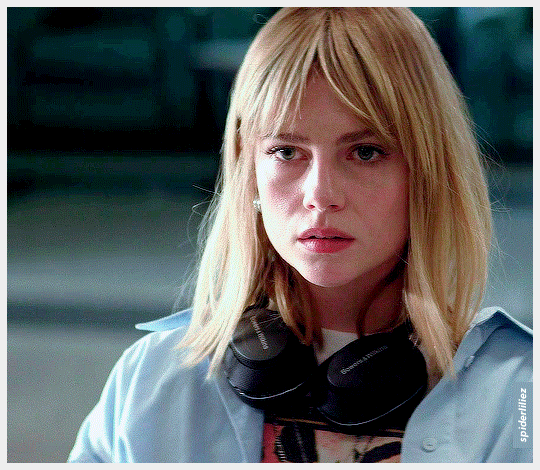

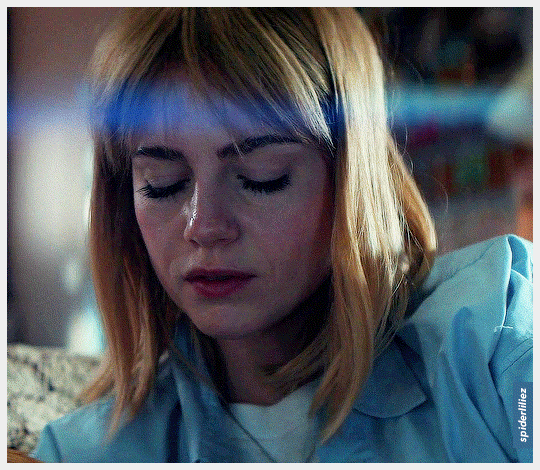
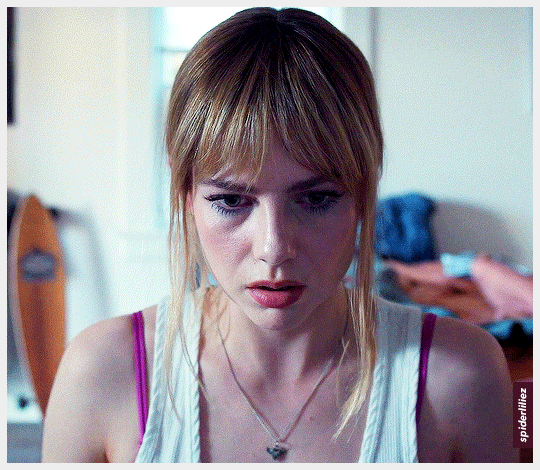
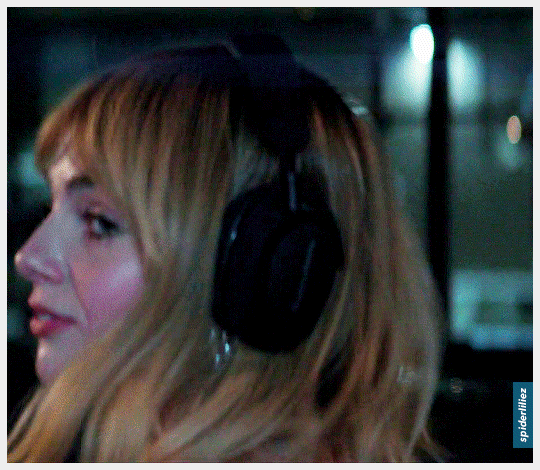
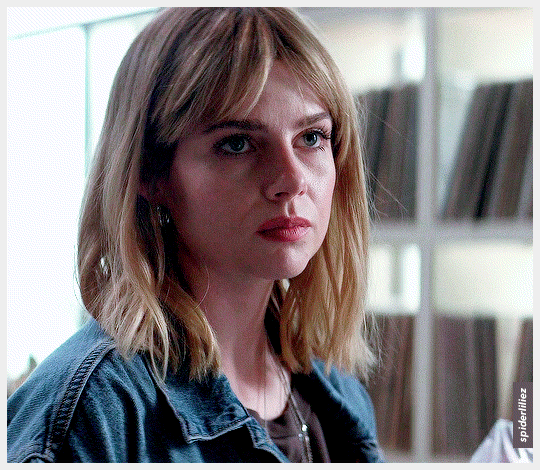

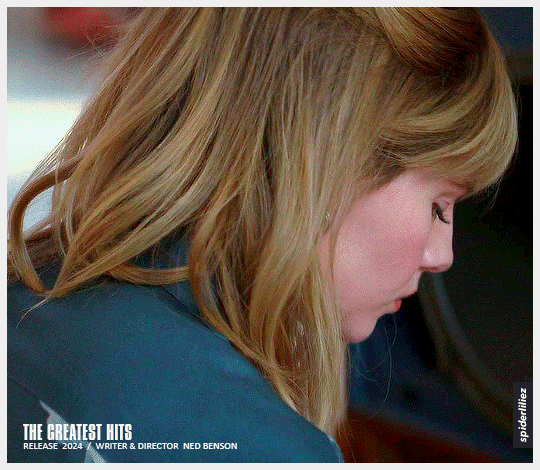
The heartbeat of nostalgia. THE GREATEST HITS (2024) [+] LUCY BOYNTON [GIF Collection] 🌷 [+] “The Greatest Hits” 🎬
127 notes
·
View notes
Text

Tuesday, November 12 – SwynRPVision

OLIVE BRIGHT: WW2 PIGEONEER MOVIE TRAILER RELEASED!
Though war rages across mainland Europe and London is strafed by German aircraft, the little village of Pipley in Hertfordshire bustles along much as it always has. Adrift since her best friend, George, joined the Royal Air Force, twenty-two-year-old Olive Bright fills her days by helping at her father's veterinary practice and tending to her beloved racing pigeons. Desperate to do her bit, Olive hopes that the National Pigeon Service will enlist Bright Lofts' expertise, and use their highly trained birds to deliver critical, coded messages for His Majesty's Forces.
The strangers who arrive in Pipley are not from the NPS. Instead, Jameson Aldridge and his associate are tied to a covert British intelligence organization known as Baker Street. If Olive wants her pigeons to help the war effort, she must do so in complete secrecy. Tired of living vicariously through the characters of her beloved Agatha Christie novels, Olive readily agrees. But in the midst of her subterfuge, the village of Pipley is dealing with another mystery. Local busybody Miss Husselbee is found dead outside Olive's pigeon loft. Is the murder tied to Olive's new assignment? Or did Miss Husselbee finally succeed in ferreting out a secret shameful enough to kill for? With the gruff, handsome Jameson as an unlikely ally, Olive intends to find out--but homing in on a murderer can be a deadly business...
CAST AND CREW BELOW CUT
The Studio: Olive Bright, WW2 Pigeoneer is being produced by Searchlight Pictures, a studio unit underneath Sidney Family Studios. Award-winning films by Searchlight Pictures include Slumdog Millionaire, 12 Years a Slave, Birdman or (The Unexpected Virtue of Ignorance), and The Shape of Water.
Cast Olive Bright - Penny Forrester* George - The Voice Actor of Bolt in a Cameo Role Jameson Aldridge - Jack Reynor Harriet Bright - Minnie Driver Rupert Bright - Benedict Wong Miss Verity Husselbee - Helena Bonham Carter Dr. Ware - Riz Ahmed Margaret Middleton - Antonia Thomas Leo Truscott, vicar - Nicholas Hoult Rose Darling - Jessica Brown Findlay Violet Darling - Cara Theobold Winifred Danes - Sophie Okonedo Jonathan (London Evacuee staying with Brights) - Will Buie Jr. Henrietta Gibbons, Girl Guide - Mia Talerico
#swynwrimolaur#swynwrimo2024#this trailer is SOOOOOOOOO bad but u get the gist right LOL#just thought itd be fun to have one but didn't have the skill time or energy to actually make a good one
1 note
·
View note
Text
The Greatest Hits (2024) Review
Harriet Gibbons travels back in time through listening to different songs and allows her to see those romantic memories of her deceased boyfriend, with this will she actually change the past to give a better future? ⭐️⭐️⭐️ Continue reading The Greatest Hits (2024) Review
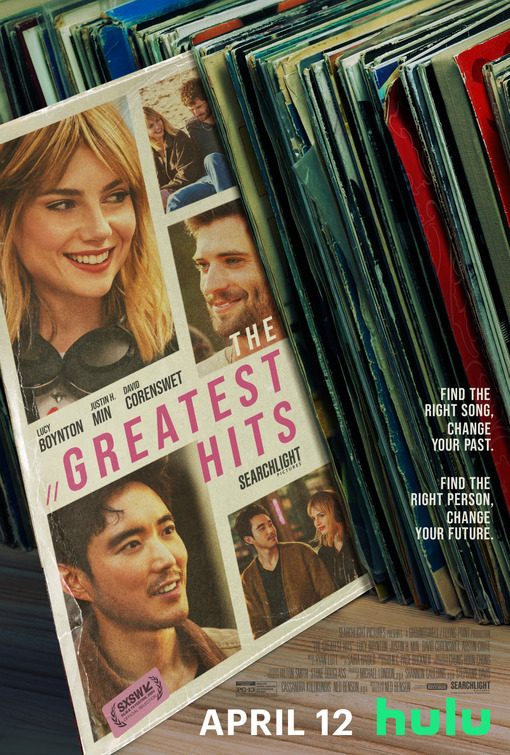
View On WordPress
#2024#Alyssa Hunter#Amazon Prime Video#Andie Ju#Austin Crute#Clementine Creevy#David Corenswet#Drama#Jackson Kelly#Jenne Kang#Justin H. Min#Lucy Boynton#Mary Eileen O&039;Donnell#Music#Ned Benson#Nelly Furtado#Retta#Review#Romance#Rory Keane#Shelby Cobb#The Greatest Hits#Thomas Ochoa#Tom Yi
0 notes
Text










my personal biggest female musical inspirations i love and adore so much <3
also s/o to georgia hubley from yo la tengo, meriel barham from pale saints, rachel goswell from slowdive, seana carmody from swirlies, and bilinda butcher from my bloody valentine cuz even tho they share the spotlight i absolutely adore it when they pop in 🕊
#kim gordon#sonic youth#cat power#chan marshall#erykah badu#harriet wheeler#the sundays#elizabeth fraser#cocteau twins#alice glass#crystal castles#beth gibbons#portishead#bjork#fiona apple#kim deal#the breeders#the pixies
352 notes
·
View notes
Photo

Alannah Thomas, Pippa Bennett-Warner & Reuben Kotey as Maggie Lennox, Harriet Lennox & Joseph Lennox in ‘Harlots’ (TV Series, 2017-2019).
#harlots#perioddramaedit#pippa bennett warner#alannah thomas#reuben kotey#maggie lennox#harriet lennox#joseph lennox#fashion#brown hair#brown eyes#18th Century#Edward K. Gibbon#Charlotte Mitchell#Richard Cooke
160 notes
·
View notes